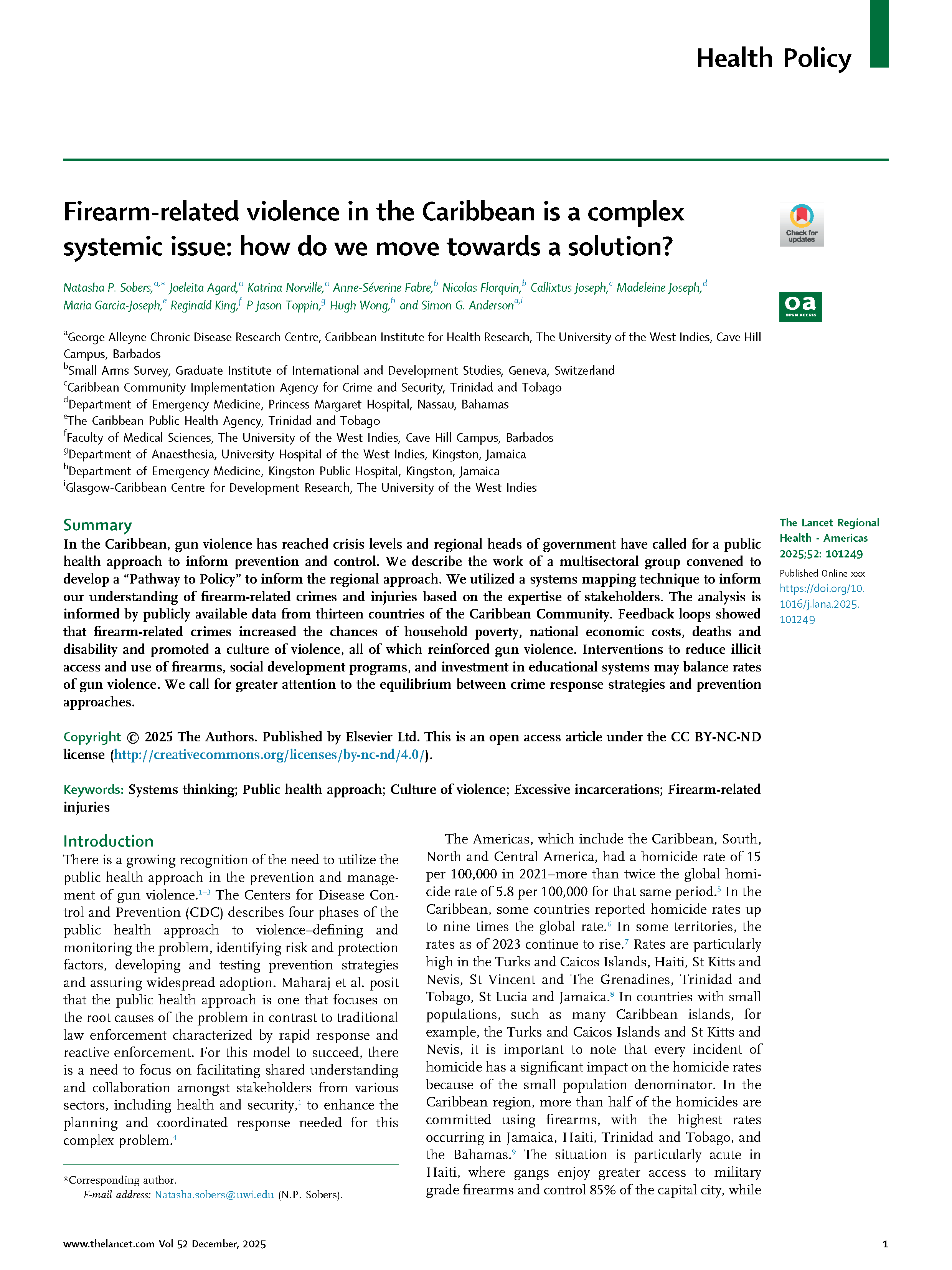
Firearm-related violence in the Caribbean is a complex systemic issue: how do we move towards a solution?
In the Caribbean, gun violence has reached crisis levels and regional heads of government have called for a public health approach to inform prevention and control. Feedback loops resulting from work carried out under the ‘Pathway to Policy’ project showed that firearm-related crimes increased the chances of household poverty, national economic costs, deaths and disability and promoted a culture of violence, all of which reinforced gun violence. Interventions to reduce illicit access and use of firearms, social development programs, and investment in educational systems may balance rates of gun violence.
Firearm-related violence in the Caribbean is a complex systemic issue: how do we move towards a solution?—an article co-written with our project partners from the Caribbean Community Implementation Agency for Crime and Security, the Caribbean Public Health Agency, and the George Alleyne Chronic Disease Center at the University of the West Indies—discusses the work carried out by the Advisory Committee of Regional Experts, a multisectoral group convened to develop a ‘pathway to policy’ that informs a regional approach to tackling firearm violence. Using a systems mapping technique to inform our understanding of firearm-related crimes and injuries based on the expertise of stakeholders and based on analysis of publicly available data from thirteen countries within the Caribbean Community, this article calls for greater attention to the equilibrium between crime response strategies and prevention approaches.